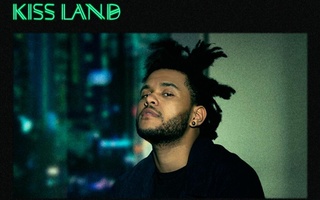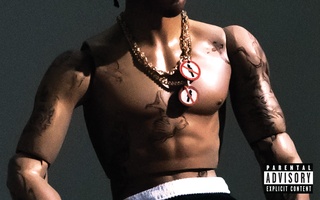Justin Bieber may get more headlines, but in the past year an even more talented Canadian singer has left his own trail of broken hearts. Abel Tesfaye, under the name The Weeknd, released three mixtapes in 2011 and made a significant impression on the R&B world. First came the well-received “House of Balloons,” whose amalgamation of jarring, synthesized melodies and echo-like vocals revealed The Weeknd’s daring genre-mixing style. “Thursday” and “Echoes of Silence” followed to similarly positive reception, with “Echoes of Silence” especially praised for the vocal emotion felt in songs such as “D.D”, a charged rendition of Michael Jackson’s “Dirty Diana”, and “Outside,” a sultry reminder of the discordance between wants and needs. Today, The Weeknd will be releasing his debut album “Trilogy.” The album will include remastered versions of all three mixtapes as well as three new songs that further expose the ugly side of love.
The Weeknd knows how to set a mood—whether it is through the steady pulse of an electronic bass drum or the high, lofty tones of his voice, he creates an atmosphere of heartbreak and longing. Factor in lyrics of sex, betrayal, and lost romance, and the darker facets of love are poignantly exposed. In “Montreal,” originally from “Echoes of Silence,” The Weeknd combines French and English lyrics with oscillating synthesizers to detail the hurt of past love and the lonely fleetingness of present affairs. He sings, “Oui j’ai pleuré mais ce jour-là / Non, je ne pleurerai pas” (“Yes, I cried, but this day / No, I will not cry”). It is a concerted, depressed effort to protect a once-battered heart.
The Weeknd continues to dismantle love’s archetype in “Valerie,” one of his new songs. Lies and deceit are the points of focus, as he sings, “Cause I love you and I need you / I only want you / And nobody’s going to know if it’s true.” Grating, electronic snare rumbles intermittently interrupt the gentle hi-hat groove and feather-light keyboard, creating an instrumental representation of the conflicting lies he tells and the “truth” Valerie chooses to believe. The relationship is exposed as a fraud, as he details his adultery and Valerie’s willful ignorance, all because “You’d rather this than be alone.”
The “Trilogy” is a welcome re-exposure to The Weeknd’s take on relationships. While he presents a seemingly depressing and unhopeful portrayal of love, his lyrics and unique instrumentals provide a refreshing, unrepentant critique on the classically extolled emotion.
—Staff writer Adabelle Ekechukwu can be reached at aekechukwu14@college.harvard.edu.
Read more in Arts
What Sandy Hath Wrought
















